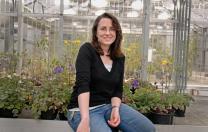Of the 176 senior professors in the Faculty of Arts and Sciences (FAS) and four professional schools who were offered a retirement program in December 2009, 46--or 26 percent--have enrolled.
FAS had the greatest stake in the retirement program: 127 of its approximately 720 faculty members met the criteria (age 65 by September 1, and at least 10 years of Harvard service). The program allowed them to choose to retire after one, two, or four years, with various teaching and service requirements during those periods and commensurately stepped-down salaries (but with pension contributions intact). Thirty-two FAS professors accepted the offers--25 percent of those eligible. Fourteen of 49 eligible faculty members in the schools of divinity, education, medicine, and public health decided to participate. The results of their decisions were published on November 15 in the 2010 annual report of the senior vice provost for faculty development and diversity.
During the past five years, according to Nina Zipser, dean for faculty affairs and planning within FAS, an average of seven FAS professors have retired annually: a bit less than 1 percent of the total population. (Under the retirement program, that rate will tick up to about 10 annually.)
Senior vice provost Judith D. Singer noted that the program was experimental: since the legal abolition of mandatory retirement for professors in 1994, only the Business School has offered a regular retirement program for faculty. Given the response to this pilot offering, FAS and the divinity and public-health schools have already made plans to unveil continuing retirement programs for their professors, beginning in December 2010. (FAS’s program, unveiled December 1 and available “for the foreseeable future,” offers professors aged 65 to 72 two- and four-year phased retirement options. Older faculty members can avail themselves of a half-time transition to retirement.)
Singer noted that the median age of those who accepted a retirement option was 70, and that those who enrolled primarily chose the longer-term plans: more than half elected the two-year path, and another one-third selected the four-year path. The self-selection, she said, was “good for the faculty and good for the institution.”
Her annual report notes that 40 of the 46 participants (87 percent) are white males, four are white women, and two are minorities--proportions roughly equal to the demographic composition of tenured professors in the eligible age cohort.
The retirements thus may have some small effect on the affected faculties’ diversity. During the past academic year, the annual report says, Harvard hired 64 new faculty members externally: 44 assistant professors, 7 associate professors, and 13 full professors. Of that cohort, Singer said, 30 are white males (47 percent), 22 are women, and 21 are members of identified minorities (4 blacks, 4 Latinos, 12 Asians, and one dual-counted under current standards)--clearly, more diverse than the retirees. But not all will win tenure.








